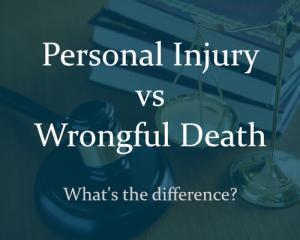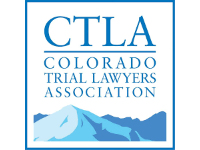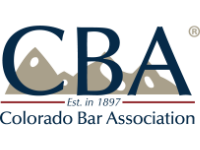Unfortunately, since the financial losses of every wrongful death case are so drastically different, there is no way to put an exact number on the “Average” settlement amount. This is based upon a variety of factors, but the most simple is this: in many cases, the settlement amount is driven by the amount of available insurance coverage. In a car accident case, if the at-fault driver had $50,000 in insurance coverage, no additional assets, and there were no other insurance policies available, the case would be worth $50,000, as that’s all that could reasonably be collected.
Then there’s the question of non-economic damages, which are discussed below.
To sum it up: cases with little financial loss will settle for significantly less, whereas claims with major financial losses where the deceased had a substantial amount of financial responsibility to their family, the claim amounts will be much higher, sometimes reaching the multi million dollar mark (as always, depending on available insurance coverage). Knowing this, we can make an informed calculation on what your claim could be worth, based on the losses you incurred and the amount of insurance coverage available. For an in depth evaluation of your case and a detailed breakdown of your potential claim value, make sure to reach out to our wrongful death attorneys today for a free consultation.
Calculating your monetary losses after the death of a loved one is never an easy thing to have to think about, but it’s part of the process when their life was unfairly taken by a negligent party. When a negligent person or company acts in a way that causes the death of another person, they are legally required to pay for the family’s losses, which is where wrongful death settlements come into play. But how do we calculate all of these financial losses? Well, let’s break it down into simpler terms.
Economic damages are financial losses that are incurred by the affected party. In wrongful death settlements, the affected parties are the heirs of the deceased person, which could be their children, spouse or family members. These parties have to deal with the grief that comes with a death in the family, but also the financial stress that comes with it. These are called economic losses because they have an exact dollar amount tied to them. Some of these costs are things such as funeral and burial expenses, loss of wages or income, medical expenses, loss of gifts or benefits from the deceased, value of services, future financial support and more. Let’s look at some examples, while keeping in mind that not every example will apply to every case.
Funeral & Burial Costs: When there is a death, funerals and the cost to bury your loved on as well as the memorial and headstone are all costs that you will have to cover. These costs will be included in your settlement amount.
Loss Of Income & Future Financial Support: If the deceased was helping you financially, then these financial losses will also need to be recovered from the negligent party that caused the death. This can also mean future financial payments that were planned as well, within reason.
Loss Of Gifts Or Benefits: If the deceased normally provided gifts or other types of financial benefits to the family, whether that be once a year or every month, then these will also be included in your settlement amount.
Non-economic damages are the losses you incur that do not have an exact dollar amount tied to them. These are typically things such as loss of affection, loss of moral support, loss of companionship and loss of sexual relationship.
There is also an available amount called “solatium” which can be claimed in lieu of demonstrating the degree of non-economic damages. This comes into play in situations where emotional damages are contested, or are attenuated. The solatium amount is applicable to defeat a claim that a surviving heir is just trying to profit off of the death of a distant family member. For example, if your father whom you despised all your life passed away, an insurance company would try to downplay the emotional impact of his death and limit recovery in a wrongful death case. You can elect to pursue solatium instead of proving non-economic damages directly. If you do, your amount will be a lot less, but you will not have to bring any evidence showing emotional distress. The solatium amount also changes based upon factors including the year the death occurred.
These types of losses are never easy to put a number on and need to be looked at in detail with your attorney to determine a probable amount you may receive for compensation of these losses on top of your economic damages.
Survival actions are slightly different from wrongful death lawsuit settlements because it covers certain financial losses incurred before death that are not available in a wrongful death suit. So if the accident that ended up causing the death caused major injuries first, where the now deceased had to be hospitalized and receive medical treatment, then these costs would be awarded in a survival action. However, no pain and suffering can be claimed on behalf of a decedent in a survival action, which is again, a separate claim than a wrongful death case. Survival actions are prosecuted or brought on behalf of the estate of the decedent, and are complicated in their own right. It is not a wise decision to pursue a survival action without the assistance of an attorney.
Getting the maximum amount of compensation for your claim is the goal, but there are things that should always be avoided to ensure that you do maximize your settlement. Some things that should be avoided are:
Partial fault from the deceased person: If the accident that caused the wrongful death was partially the fault of the deceased, then the part that they were responsible for will be removed from the claim. So let’s say it was a motorcycle accident, but the deceased did something illegal that played a part in causing the motorcycle accident, then the claim compensation would be reduced by the percentage that the deceased person was deemed at fault for the accident. If they were 50% responsible for the accident, then your compensation amount would be reduced by 50%.
Speaking to the opposing party/insurance company without your lawyer: When pursuing a wrongful death action, you should never speak to the opposing party, their lawyer or insurance company without your lawyer present. Having an attorney present will help keep you from saying the wrong things that may hurt your claim which can ultimately end up costing you a lot of money unnecessarily.
Posting on social media about the claim/event: Posting about the death of your loved one or the accident that caused their death on social media may seem like the right thing to do at the time, but if you put details in there that contradict your settlement claims, then you can bet that the opposing party will try to use that against you and lower your compensation package. Make sure to stay off social media and keep the details to yourself until your claim is fully settled.
In order to get maximum compensation, you’ll need supporting evidence for all of your claims, the same as you would with a personal injury claim. You can’t expect the at-fault party to pay for things that don’t have explicit evidence of being paid out before the death, so make sure you have all documentation ready for your attorney when you start the case. This means any financial paperwork from payments or income received from the deceased, documentation of gifts or benefits typically received from the deceased, funeral & burial expense receipts and any documentation you have on the value of their services such as cleaning and cooking for the family that now has to be hired out.
All of these things will help provide supporting evidence and make it much easier to get compensation for these losses, but make sure to also provide any documentation you may have on the non-economic damages you suffered due to their death as well. Your lawyer will take all of this and put together a rock solid demand letter and start negotiations with the at-fault party or in some cases start prepping to take the claim to trial. As always, make sure you give your lawyer plenty of time to file your case before the statute of limitations runs out.
Every claim is different, so deciding to settle or go to trial needs to be determined on an individual basis, but it should be noted that most wrongful death lawsuits are settled outside of court between both parties unless an agreement can not be made. If both parties cannot agree on a fair compensation package, then your claim will go to trial. Trial can greatly extend the length of time it takes to receive your compensation, but in some cases it may be worth it to go to trial if your attorney thinks the other party is not being fair with their offer. However, most of the time, when you provide a strong case backed by evidence, the other party has no choice but to settle, so make sure you work with an exceptional wrongful death attorney for best results.







